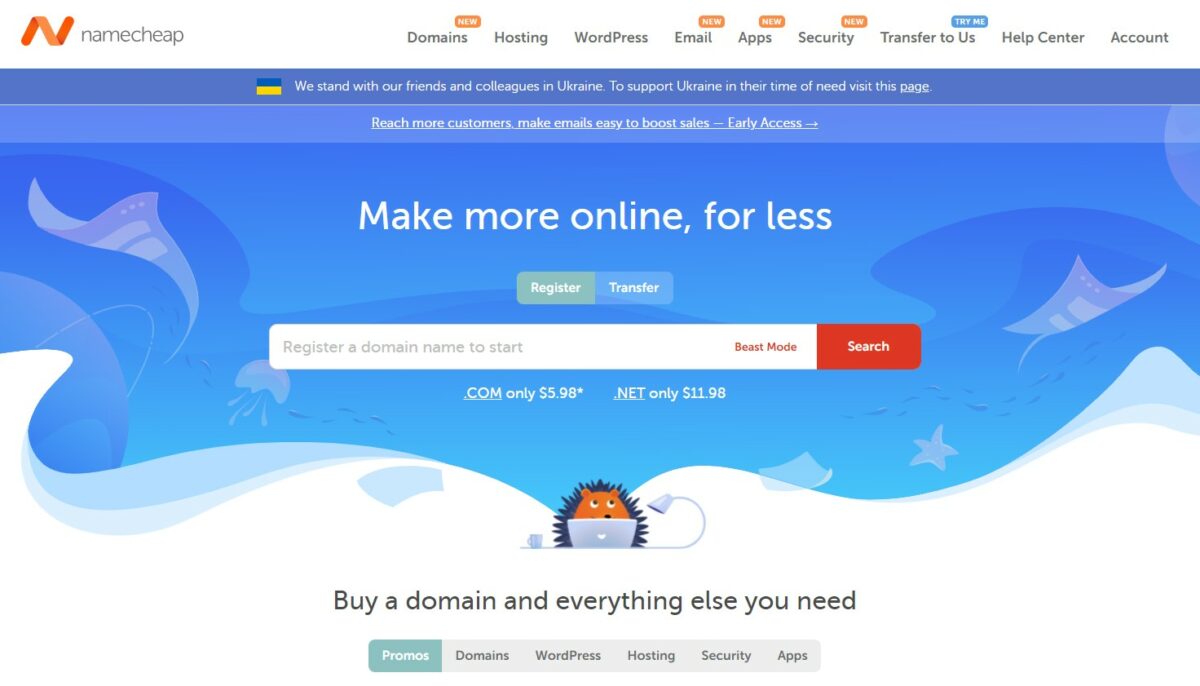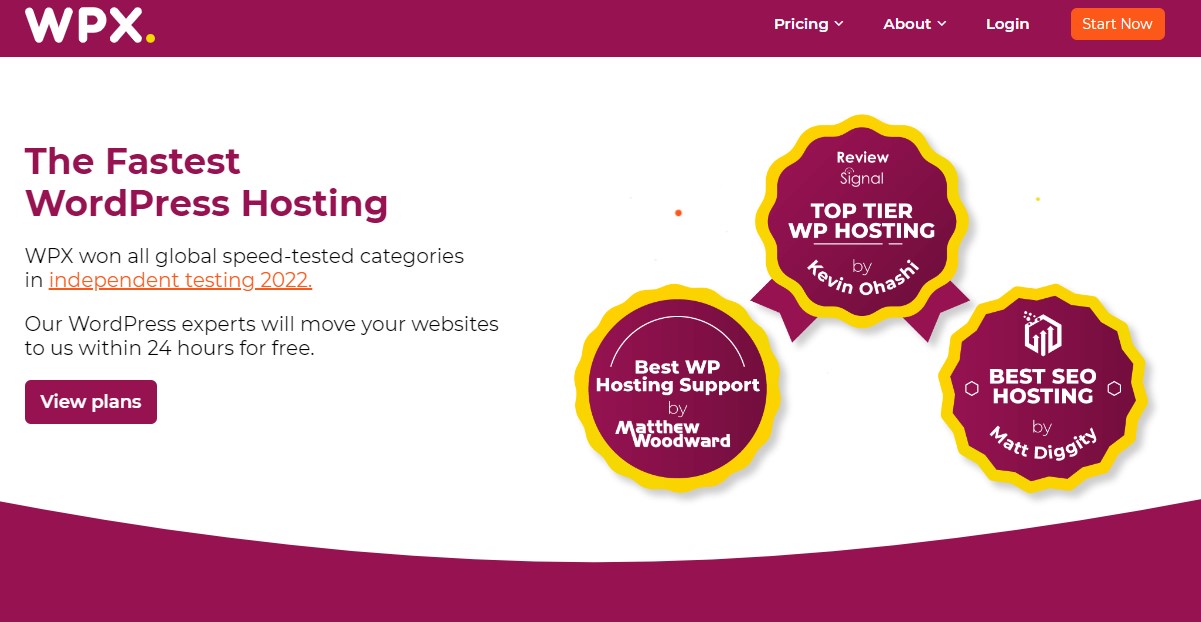Starting a blog in 2024 could be your ticket to financial freedom and a creative outlet that allows you to share your passions and expertise with the world.
With the potential to make money through various monetization strategies, blogging remains a viable income source for dedicated individuals.
To begin your blogging journey, you’ll need to choose a blogging platform, secure a domain name and web hosting, and design and create your blog to reflect your unique voice.
Once your blog is set up, focusing on a solid content strategy will be crucial to your success.
This involves generating valuable, high-quality content to attract and retain readers, as well as promoting your blog and building relationships within your niche community.
Monetizing your blog through advertising, affiliate marketing, or other methods requires a consistent approach and adaptability, analyzing and optimizing your strategies to ensure long-term growth.
Post Contents
Key Takeaways
- Navigating the steps to create and design a successful blog, including choosing a platform such as WordPress and selecting reliable domain and hosting services like Namecheap and WPX.net.
- Prioritizing content strategy and consistent quality to attract and engage readers, while actively promoting and monetizing through various channels.
- Regularly analyzing and optimizing blog strategies to ensure continuous growth and stability in the competitive blogging landscape.
Choosing a Blogging Platform

When starting a blog and aiming to make money from it, one of the first and most crucial decisions you’ll need to make is selecting the right blogging platform.
Your choice will directly affect your blog’s functionality, appearance, and your ability to monetize it.
WordPress is a highly recommended blogging platform due to its flexibility, user-friendliness, and extensive plugin ecosystem.
As an open-source platform, it is versatile and can be customized to suit your needs. You can choose from thousands of free or premium themes to make your blog visually appealing.
Additionally, WordPress offers a plethora of plugins that can help enhance your blog’s features, optimize it for search engines, and enable you to monetize it through various methods like ads, affiliate marketing, or selling digital products.
Now, to set up your blog with WordPress, you’ll need a domain name and web hosting.
Namecheap

For domain registration, Namecheap is an excellent option.
Namecheap is known for its affordability and reliable domain registration services.
Their user-friendly interface makes it simple to search for and register your desired domain name.
WPX.net
When it comes to web hosting, WPX.net is a highly recommended choice.
WPX.net is a WordPress-specific, managed hosting provider designed to offer optimal performance and support for your WordPress blog.
They provide fast page loading speeds, SSD storage, automatic backups, and robust security features.
Moreover, their customer support team is highly responsive, ensuring that any technical issues you may encounter are resolved quickly.
Domain Name and Hosting

Selecting a Domain Name
When starting a blog, choosing a domain name is an important step.
A domain name is the address where your blog will be found on the internet (e.g., yourblog.com).
It should represent either the general topics you’ll be writing about or could be your own personal name, your business name, or a clever combination of words.
Here are some tips for selecting a domain name:
- Keep it short, simple, and memorable.
- Avoid hyphens and numbers.
- Make it easy to spell and pronounce.
- Choose a descriptive name that piques readers’ interests.
We recommend using Namecheap for purchasing your domain as it offers a wide selection of domain extensions at competitive prices.
Choosing the Right Hosting
Once you have selected your domain name, it’s time to choose a reliable web hosting service.
A web host stores your blog’s files and ensures that your site is accessible on the internet.
Here are some factors to consider when choosing the right hosting service:
- Speed: A faster site will provide a better user experience and can potentially help your search engine rankings.
- Uptime: Look for a hosting service that guarantees at least 99.9% uptime to ensure your blog is accessible at all times.
- Customer Support: Choose a provider with responsive and helpful customer support.
We recommend WPX.net as a hosting provider for your WordPress blog due to their impressive performance, robust security features, and excellent customer support.
To set up your blog, follow these steps:
- Register your domain name with Namecheap.
- Sign up for a web hosting account with WPX.net.
- Install WordPress on your WPX.net hosting account. This will provide you with a user-friendly platform to create, publish, and manage your blog content.
By carefully selecting your domain name and hosting provider, you are laying the foundation for a successful blog that can attract readers and make money through various monetization strategies.
Design and Create Your Blog

In this section, we will walk you through the process of designing and creating your blog.
Selecting a Theme
To make your blog visually appealing and user-friendly, you need to choose a theme.
A theme is a pre-designed template that dictates how your blog will look and feel.
With WordPress, you have access to a plethora of free and paid themes.
To find a theme that best suits your needs, consider the following steps:
- Identify your niche: Choose a theme that complements your niche and the tone of your content.
- Responsive design: Ensure the theme is responsive, which means it automatically adapts to different screen sizes (desktop, tablet, and mobile).
- Customization options: Pick a theme that offers plenty of customization options for fonts, colors, and layouts to make your blog uniquely yours.
You can search for and install themes from within your WordPress dashboard under Appearance > Themes.
Important Plugins
Plugins help enhance the functionality of your WordPress blog.
While there are thousands of plugins available, here are some essential plugins that will come in handy for your blogging journey:
- Yoast SEO: This plugin will help optimize your blog’s SEO, making it more easily discoverable by search engines. Install Yoast SEO from within your WordPress dashboard by going to Plugins > Add New and searching for “Yoast SEO.”
- Akismet Anti-Spam: Keep spam at bay by using Akismet. It filters out spam comments, keeping your blogging space clean. To activate the plugin, go to Plugins > Installed Plugins and look for “Akismet Anti-Spam.”
- WP Super Cache: Speed up your blog by enabling WP Super Cache. This plugin reduces the load time of pages and improves the overall performance of your site. Find and install the plugin by going to Plugins > Add New and searching for “WP Super Cache.”
- Contact Form 7: Allow your visitors to get in touch with you through a simple contact form. Install Contact Form 7 by going to Plugins > Add New and typing “Contact Form 7” in the search box.
Plan Your Content Strategy

Discover Your Niche
To effectively start a blog that makes money, it’s crucial to identify your unique niche.
This is the topic or market upon which you’ll focus your blog content.
Take some time to consider your passions, expertise, and the target audience you want to connect with.
Choosing a specific niche will make it easier to create engaging, relevant content that appeals to your readers.
Creating an Editorial Calendar
An editorial calendar keeps your content organized, allowing you to maintain a consistent publishing schedule and stay on top of your blogging game.
Plan your content well in advance, considering seasonal trends, holidays, and events relevant to your niche.
A well-maintained editorial calendar enables you to:
- Stay organized and prioritize content
- Balance various content types (e.g., informative, entertaining, and promotional)
- Maintain a consistent posting schedule to keep readers engaged
To get started, set up a simple spreadsheet or use a project management tool like Trello to track your planned posts, publication dates, and post status (e.g., not started, in progress, completed).
Research Keywords
Conducting keyword research is essential to ensure your blog content attracts organic traffic through search engines.
You’ll want to target specific keywords in your posts that have good search volume and low competition.
This will help you rank higher on search engine results pages (SERPs) and drive more traffic to your blog.
Here are some tools and techniques you can use to find the best keywords for your niche:
- Google Keyword Planner
- AnswerThePublic
- Competitor analysis
Incorporate these keywords naturally into your blog posts without overstuffing, as this may negatively impact your SEO efforts.
Writing and Publishing High-Quality Content

To start a blog and make money, focus on writing and publishing high-quality content.
Post Types and Formats
Experiment with different post types and formats to engage your readers and showcase your expertise.
For example, you can create:
- How-to guides: Provide step-by-step instructions for a process relevant to your niche.
- Listicles: Offer a list of resources, tips, or ideas that your readers will find helpful.
- Case studies: Showcase the success of a project or strategy, including results and lessons learned.
- Interviews: Talk to experts in your niche and share their insights with your audience.
- Reviews: Share your thoughts on products or services related to your niche.
Make sure your content is well-organized, appropriately formatted with subheadings, bullet points, tables, and images as necessary.
This will make it easier for readers to understand and reference.
SEO-Friendly Writing Tips
Optimizing your content for search engines is crucial for attracting organic traffic to your blog.
Follow these SEO-friendly writing tips to improve your blog’s visibility:
- Research and target relevant keywords: Use tools like Google’s Keyword Planner or Ahrefs to find high-traffic, low-competition keywords in your niche. Incorporate these keywords naturally in your headings, subheadings, and body text.
- Write unique and engaging titles: Capture your readers’ attention with compelling titles that include your target keywords.
- Optimize meta descriptions: Craft a concise summary of your content with your target keywords to entice readers to click through from search results. This also helps search engines understand your content better.
- Use internal and external linking: Link to relevant pages on your site and reputable external sources to boost your blog’s credibility and provide value to readers.
- Make sure your site loads fast: Use efficient hosting like wpx.net, and compress images to keep your site loading quickly, which impacts your search engine ranking.
Promoting Your Blog

Once you’ve chosen your blogging platform (WordPress), domain provider (Namecheap), and web host (WPX.net), it’s important to promote your blog to attract readers and make money.
Social Media Strategy
Leveraging social media is crucial for increasing your blog’s visibility.
Create dedicated accounts for your blog on platforms like Facebook, Instagram, Twitter, and Pinterest.
Regularly share your blog posts to engage with your audience.
- Develop a consistent posting schedule: Consistently posting content will keep your followers engaged and interested.
- Use hashtags strategically: Research relevant hashtags to increase the chances your content will be discovered by potential readers.
- Interact with your followers: Respond to comments and messages, create polls, or ask questions to encourage interaction. This fosters a sense of community and promotes brand loyalty.
- Collaborate with influencers: Partnering with influencers in your niche can expose your blog to a wider audience and create valuable backlinks.
Email Marketing
Building an email list helps you develop a direct relationship with your readers and keep them engaged with your content.
- Create a lead magnet: Offer valuable content (e.g., a free e-book or checklist) in exchange for a reader’s email address. This entices potential subscribers to join your email list.
- Use an email marketing tool: Platforms like MailChimp and ConvertKit simplify email list management and allow you to create professional-looking campaigns.
- Craft engaging newsletters: Accurately segment your email list, so you can send targeted content that appeals to your readers’ specific interests. Include links to your latest blog posts and relevant promotions in these newsletters.
Guest Posting
Writing guest posts for other blogs within your niche can increase your blog’s exposure and credibility.
- Research potential guest post opportunities: Identify blogs with similar topics and audiences as yours. Check if they accept guest posts and familiarize yourself with their guidelines.
- Craft high-quality, relevant content: Write valuable content that resonates with their audience to maximize the likelihood of your post being accepted.
- Include a backlink to your blog: Usually, blogs that accept guest posts will allow you to include a brief bio with a link to your blog. This helps drive traffic back to your site and boosts your blog’s search engine rankings.
Implementing these strategies – social media, email marketing, and guest posting – will help you effectively promote your blog, attract a dedicated audience, and ultimately start making money in 2024.
Monetize Your Blog

Now that you have set up your blog, it’s time to explore ways to make money through your blog.
Affiliate Marketing
Affiliate marketing involves partnering with companies or brands and promoting their products or services on your blog.
You’ll receive a commission for every sale made through your unique referral link.
To succeed with affiliate marketing, you should:
- Research and join relevant affiliate programs that offer products or services your audience might be interested in
- Create valuable and informative content related to the affiliate products
- Incorporate your affiliate links within the content, ensuring they are natural and not overly promotional
- Disclose your affiliate relationship to maintain transparency with your audience
Display Advertising
Display advertising involves placing visual ads on your blog, such as banners, images, or text links.
Common ad networks include Google AdSense and Media.net, which pay you based on impressions or clicks.
To implement display advertising, you should:
- Sign up for an ad network that suits your niche and blog format
- Place ad units on strategic locations on your blog, such as the header, sidebar, or within content
- Monitor and optimize your ad placements and performance to maximize revenue
Sponsored Content
Sponsored content includes blog posts, reviews, or mentions of a product or service in exchange for payment.
To approach sponsored content, you should:
- Establish a media kit with your blog’s statistics, focus, and rates
- Reach out to potential sponsors that fit your niche and audience
- Create engaging and valuable sponsored content that provides genuine insight or value to your readers
Selling Products and Services
Selling your own products or services on your blog can be a lucrative endeavor.
Consider offering digital products, physical merchandise, or professional services tailored to your audience’s needs.
To get started, you should:
- Identify your audience’s pain points and create a unique product or service to address their needs
- Set up an e-commerce platform on your blog, such as WooCommerce for WordPress
- Promote your offerings through various channels, including blog posts, email marketing, and social media
By incorporating one or more of these monetization methods into your blogging strategy, you can turn your passion into a profitable venture.
Analyze and Optimize

Google Analytics
To make your blog successful and profitable, it’s essential to understand the behavior of your visitors.
Utilize Google Analytics to keep track of your website’s performance and user engagement.
Here’s how to get started:
- Sign up for a Google Analytics account using your Google account.
- Add your blog’s domain to your account.
- Insert the tracking code provided by Google Analytics into your WordPress blog.
Once integrated, Google Analytics will provide insights into your blog’s traffic, popular content, audience demographics, and more.
Use this information to identify trends and areas for improvement.
Honing Your Strategy
Now that you’re using analytics, it’s time to refine your blogging strategy.
We’ll focus on three key aspects: content, promotion, and monetization.
Content: Create content that resonates with your target audience.
Analyze your top-performing posts to identify topics and formats that are popular among your readers.
Be sure to update old content, add new information and improve its relevance.
Promotion: Identify the channels where your audience is most engaged.
This may include social media platforms like Twitter or Facebook, relevant forums, or guest blogging opportunities.
Focus your promotional efforts on these channels to attract more potential readers.
Monetization: There are various ways to monetize your blog, such as affiliate marketing, sponsored content, or display advertising.
Optimize your revenue streams based on your blog’s performance and audience preferences.
Consider testing different monetization methods to find the best fit for your blog.
FAQs
How do I choose a blog name and niche?
First, pick a name and niche for your blog that represents the topics you’ll discuss or your personality, business, or even a clever combination of words.
Make sure the name is catchy and relevant to your content.
What platform, domain provider, and web hosting should I use?
To get started with your blog, it’s recommended to use WordPress for the platform, as it offers countless customization options and growth potential.
For purchasing a domain name, Namecheap is a reliable and affordable choice.
For web hosting, consider WPX.net, known for its excellent customer support and fast performance.
How can I create content that makes money?
Choose a profitable niche by targeting an audience that has a particular interest or need.
Create high-quality and consistent content, catering to your readers’ preferences.
Building a reputation is essential, so providing value to your readers is crucial.
How do I monetize my blog?
There are various methods to make money through blogging, such as:
1. Advertising within the blog, showcasing ads that resonate with your audience
2. Offering paid subscriptions for premium content or exclusive access
3. Selling merchandise related to your blog’s niche or branding
4. Becoming an affiliate, promoting products or services relevant to your niche, and earning commissions
Remember that monetizing your blog requires time and effort, so stay focused and be patient as you grow your audience and revenue.
How can I promote my blog to attract more readers?
Promotion is essential in increasing your blog’s visibility.
Utilize social media, reach out to influencers, engage with communities related to the blog’s niche, utilize search engine optimization (SEO), and collaborate with others in your field.
These efforts will help you grow your reader base and establish a strong online presence.
By following these steps and taking advantage of the tools and resources available, you will be well on your way to creating a successful and profitable blog.
Stay dedicated, and the rewards will follow.
Conclusion
Starting a blog can be a fulfilling and profitable endeavor if you approach it with dedication and a clear plan.
By choosing reliable services like WordPress as your platform, Namecheap for your domain, and WPX.net for web hosting, you’re setting the foundation for a successful blogging journey.
Remember, consistency is key in blogging.
Maintaining a regular posting schedule and focusing on high-quality content tailored to your target audience will help you build a loyal readership.
Implementing various monetization strategies such as affiliate marketing, sponsored posts, and selling digital products can generate income from your blog.
Experiment with different formats and topics to see what resonates best with your readers.
Engaging your audience through social media and email marketing can also support your blog’s growth.
Don’t be afraid to learn from your mistakes and refine your strategies as you progress.
Lastly, be patient as you start your blogging journey.
It takes time and effort to build a profitable blog, but with dedication and the right tools at your disposal, your blog can reach heights you never thought possible.
Stay committed, focused, and enjoy watching your blog transform into a thriving online business.































